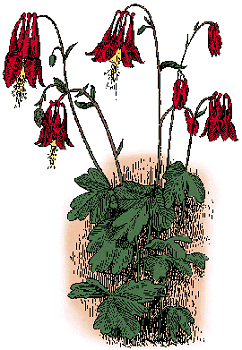: any of a genus (Aquilegia) of plants of the buttercup family with irregular showy spurred flowers: such as
a
: a red-flowered plant (A. canadensis) of eastern North America
b
: a blue-flowered plant (A. caerulea) of the Rocky Mountains
: the saucy sweetheart of Harlequin in comedy and pantomime
Subscribe to America's largest dictionary and get thousands more definitions and advanced search—ad free!
Merriam-Webster unabridged



Share